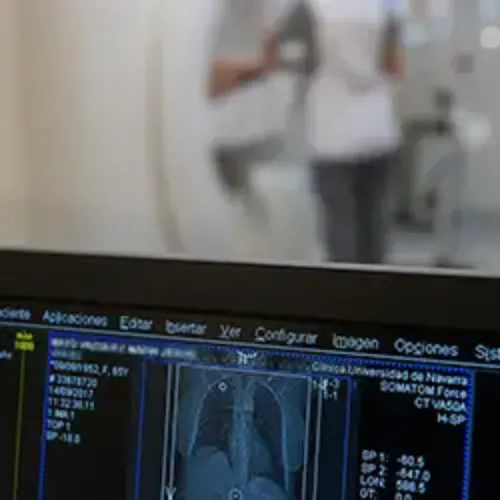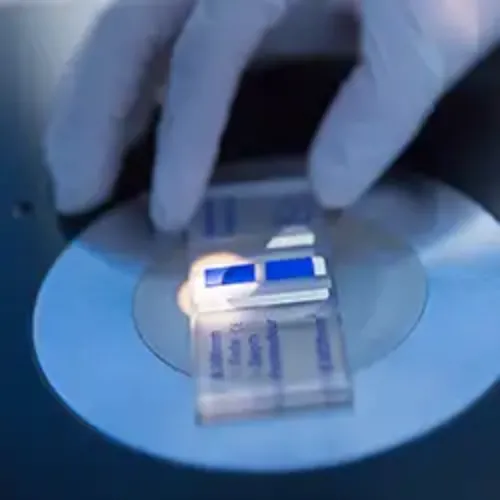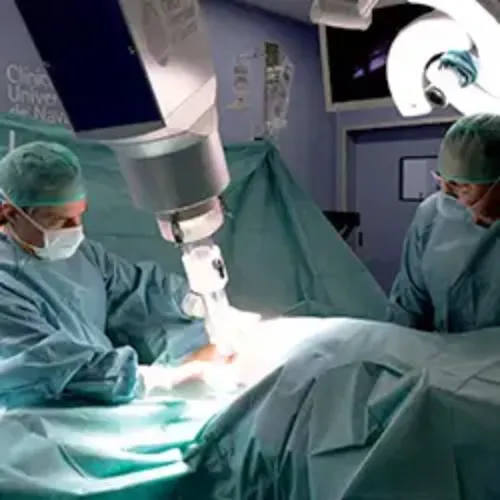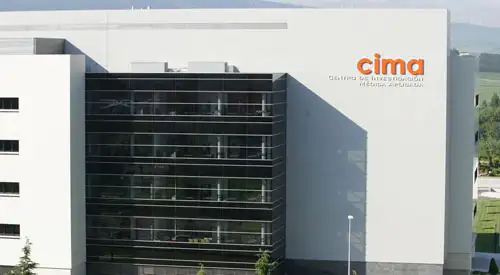Solid Tumor
"We seek to elucidate the mechanisms that promote carcinogenesis and metastasis of solid tumors with the aim of identifying and validating new molecular markers and therapeutic targets."
Cancer remains one of the most important health problems in the world. In Europe, around 3.5 million new cases are diagnosed each year and almost 2 million people die of cancer. It is estimated that the number of cases diagnosed annually will increase to more than 4 million in the next 10 years. More than 95% of cancer cases are solid tumors and, of these, one in four are tumors derived from the respiratory tract, mainly lung cancer.
In the Solid Tumors Program we try to identify the molecular mechanisms underlying the transformation of a normal cell into a malignant tumor capable of invading other organs. Based on this knowledge, we develop strategies for early diagnosis and treatment accompanied by predictive markers of response or resistance that allow a more personalized clinical management in those people suffering from any type of tumor.
To carry out our research we have access to in vitro and in vivo models, collections of clinical samples and methods and devices for genetic, cellular and imaging analysis.
Our research activity is integrated within the Cancer Center Clínica Universidad de Navarra in several of its research areas: in the Gynaecological cancer research area, the Breast cancer research area, the Melanoma and non-melanoma cancer research area, the Neuro-oncology, sarcoma and paediatric tumour research area, the Respiratory tract tumour research area and the Liver and digestive tumour research area. This union strengthens the interaction between basic science and its applicability in clinical practice, the tandem CIMA-University of Navarra-University of Navarra allows us to develop high-impact translational projects that can lead to examples of personalized medicine.
We also actively participate in collaborative networks and regional, national and international consortia, such as the Navarra Health Research Institute (IdisNA), the Spanish Lung Cancer Group (GECP), the Center for Biomedical Research Network in Cancer (CIBERONC), International Association for the Study of Lung Cancer (IASLC - Staging and Prognostic Factors Commission), International Early Lung Cancer Action Program (I-ELCAP) or European Network for the Study of Cholangiocarcinoma (ENS-CCA), among others.

PROGRAM MANAGERS
| Dr. Matías Ávila | |
| +34 948 194 700 | Ext. 814003 | |
| maavila@unav.es | |
| Research profile | |
| Dra. Marta Alonso | |
| +34 948 194 700 | Ext. 81 2026 | |
| mmalonso@unav.es | |
| Research profile | |
Oncology research integrated in the
Cancer Center Clinica Universidad de Navarra

Solid Tumor Program Research Groups
We seek to improve therapeutic alternatives against cancer
| |
Fernando Lecanda Principal Investigator Curriculum |
| Rafael Martínez Monge Principal Investigator Curriculum |
| Luis Montuenga Principal Investigator Curriculum |
| Luis Seijo Principal Investigator Curriculum |
| Juan Dubrot Principal Investigator Curriculum |
| Matías Ávila Principal Investigator Curriculum |
| |
Carmen Berasain Principal Investigator Curriculum |
| Antonio Fontanellas Principal Investigator Curriculum |
| Silvestre Vicent Principal Investigator Curriculum |
| Mariano Ponz Principal Investigator Curriculum |
| Rubén Pío Principal Investigator Curriculum |
| Antonio González Principal Investigator Curriculum |
| Marta Alonso Principal Investigator Curriculum |
| Karmele Valencia Principal Investigator Curriculum |
| Sara Labiano Principal Investigator Curriculum |
| Maite García Fernández-Barrena Principal Investigator Curriculum |
Objectives of the Solid Tumor Program
Understanding the mechanisms involved in the origin of solid tumors
We investigate the molecular processes that promote carcinogenesis and metastasis of solid tumors.
Develop diagnostic and predictive markers of response
We identify and validate markers that help in the early detection of tumors or that allow the selection of the most appropriate treatment for each patient.
Identifying new therapeutic targets
We are looking for new molecular targets to develop more specific and effective therapeutic strategies.
FROM THE LABORATORY DIRECTLY TO THE CLINIC
Cutting-edge translational research
In order for our research to reach the cancer patient, we work in very close collaboration with the departments of the Clínica Universidad de Navarra involved in the diagnosis and treatment of cancer. We are part of the Multidisciplinary Areas of the Cancer Center of the Universidad de Navarra (CCUN) and we interact continuously with the Departments of Pediatrics, Pneumology, Oncology, Thoracic Surgery, Neurology, Neurosurgery, Radiology, Anatomic Pathology, Clinical Biochemistry and Nuclear Medicine.

Early detection of lung cancer
We are part of the lung cancer early detection program of the Clínica Universidad de Navarra.

Immunotherapy combinations
We innovate in the design of new therapeutic strategies that enhance the antitumor response of our immune system.

Potentiation of radiotherapy
We evaluate the mechanisms of response to radiotherapy in order to enhance its efficacy and minimize its side effects.

Would you like to help us?
Thanks to the generosity of many people, the Cima Universidad de Navarra is a reality that strives to offer therapeutic solutions to achieve personalized medicine for patients.